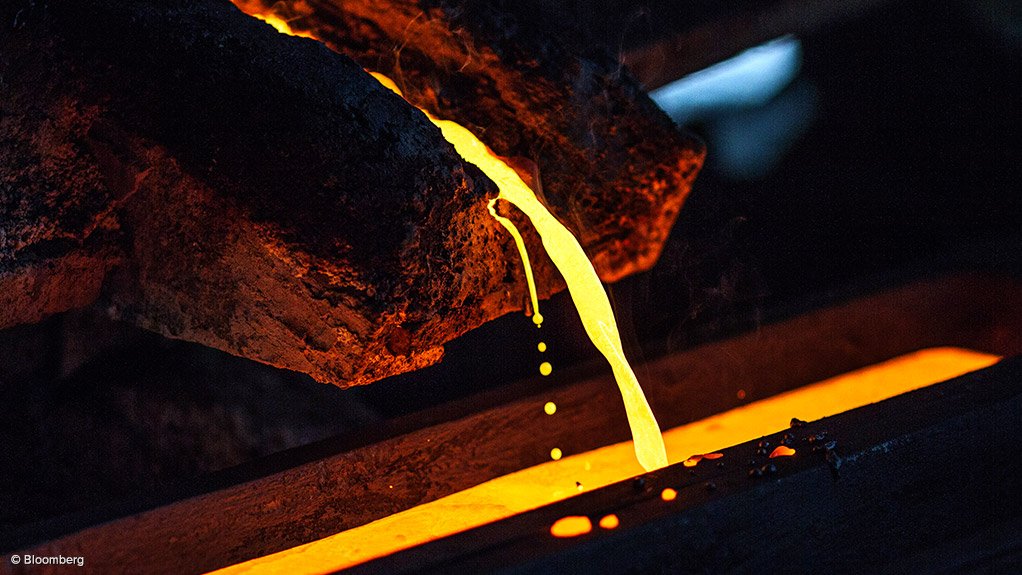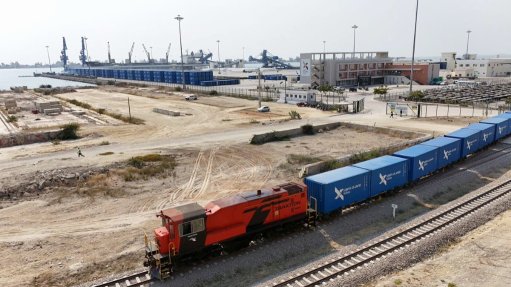Electric future planned for Escondida
PERTH (miningweekly.com) – Mining major BHP is working towards the full electrification of its Escondida and Spence copper operations, in Chile.
BHP’s Minerals America VP for planning & technical, Alejandro Tapia, said that the company’s aim in Chile was to displace its Scope 1 emissions generated from diesel consumption.
Both Escondida and Spence have transitioned to 100% renewable energy, three years ahead of schedule, with the operations reporting net zero Scope 2 emissions through the 2022 calendar year, up until the end of May this year.
However, Tapia said that BHP's focus would be on maintaining this renewable energy supply as power demand increases with further electrification at the copper operations.
“Along with projects needed to enable growth, we expect an increase of up to 70% in our power demand in Chile as we get to the first stage of trolley assist. Of course, we are aiming to meet this using fully renewable power.
“Initiatives are already in place to work towards electrifying all our operations, which would reduce these emissions in the near term,” he added.
Tapia pointed out that of the Scope 1 emissions from diesel consumption at Escondida and Spence, 80% was from haul trucks, 13% from ancillary equipment, and 7% from water boilers used in the electrowinning process in the cathode area.
BHP is working to displace 100% of its diesel consumption in the water boilers in a project that would require a capital investment of $85-million, and which would deliver first results by 2025.
The boilers are used to increase the temperature of the mineral-rich solution where the electrowinning process takes place to produce cathodes. BHP expects to replace these diesel-fired boilers with zero emissions heat sources through combining a thermo-solar and electric boiler solution. This will leverage the efficiency associated with Escondida’s location in a region with one of the highest levels of UV radiation globally, save about 30-million litres of diesel a year, reduce Scope 1 emissions for the miner’s Chilean assets by about 7% and avoid about 1 000 round trips for diesel truck to and from the mine site.
Escondida’s project would be one of the largest thermo-solar energy production facilities in the world.
“Secondly, we’re studying trolley-assisted haul trucks to ‘drive’ those Scope 1 emissions further down,” Tapia said.
“Our diesel-mechanical haul trucks are progressively being replaced by diesel-electric trucks over coming years, which means they use diesel engines to drive electric wheel motors, so called “diesel-electric” trucks. We will approach trolley assist in two stages.
“First, we will implement trolley assist with diesel-electric trucks. And second, next decade, we will expand the trolley infrastructure to assist a transition from diesel-electric to the next generation of battery electric haul trucks.”
Tapia said that BHP would soon begin testing diesel-electric trolley assist at Escondida, followed by Spence, with implementation of the first stage expected to start in 2028 and 2029, respectively. This timing is mostly driven by permitting, component lead times and retrofitting.
Once diesel-electric trolley assist is fully deployed, BHP expects to reduce Scope 1 haul truck emissions by around 30%.
“Before we implement trolley assist, we will roll out autonomous haulage at both mines. This made the most sense as it means we can optimise routes and battery charging cycles, and avoid the costs of refitting ramps.
“We have thought deeply about the approach here in terms of timing and scale to maximise value and our plans are based on how to maximise net present value, i.e. we will only install trolley in ramps where it makes sense to do so for value.
“At the second stage, the trolley will not only power the electric drive, but it will also charge the batteries while the trucks are operating, so reducing the need to stop for static charging.
“Once the autonomous, trolley and battery electric trucks are proven, we’re planning a widespread adoption across our assets, which would enable an efficient, low-risk, zero emissions materials handling solution by 2040,” Tapia said.
Article Enquiry
Email Article
Save Article
Feedback
To advertise email advertising@creamermedia.co.za or click here
Comments
Press Office
Announcements
What's On
Subscribe to improve your user experience...
Option 1 (equivalent of R125 a month):
Receive a weekly copy of Creamer Media's Engineering News & Mining Weekly magazine
(print copy for those in South Africa and e-magazine for those outside of South Africa)
Receive daily email newsletters
Access to full search results
Access archive of magazine back copies
Access to Projects in Progress
Access to ONE Research Report of your choice in PDF format
Option 2 (equivalent of R375 a month):
All benefits from Option 1
PLUS
Access to Creamer Media's Research Channel Africa for ALL Research Reports, in PDF format, on various industrial and mining sectors
including Electricity; Water; Energy Transition; Hydrogen; Roads, Rail and Ports; Coal; Gold; Platinum; Battery Metals; etc.
Already a subscriber?
Forgotten your password?
Receive weekly copy of Creamer Media's Engineering News & Mining Weekly magazine (print copy for those in South Africa and e-magazine for those outside of South Africa)
➕
Recieve daily email newsletters
➕
Access to full search results
➕
Access archive of magazine back copies
➕
Access to Projects in Progress
➕
Access to ONE Research Report of your choice in PDF format
RESEARCH CHANNEL AFRICA
R4500 (equivalent of R375 a month)
SUBSCRIBEAll benefits from Option 1
➕
Access to Creamer Media's Research Channel Africa for ALL Research Reports on various industrial and mining sectors, in PDF format, including on:
Electricity
➕
Water
➕
Energy Transition
➕
Hydrogen
➕
Roads, Rail and Ports
➕
Coal
➕
Gold
➕
Platinum
➕
Battery Metals
➕
etc.
Receive all benefits from Option 1 or Option 2 delivered to numerous people at your company
➕
Multiple User names and Passwords for simultaneous log-ins
➕
Intranet integration access to all in your organisation





















